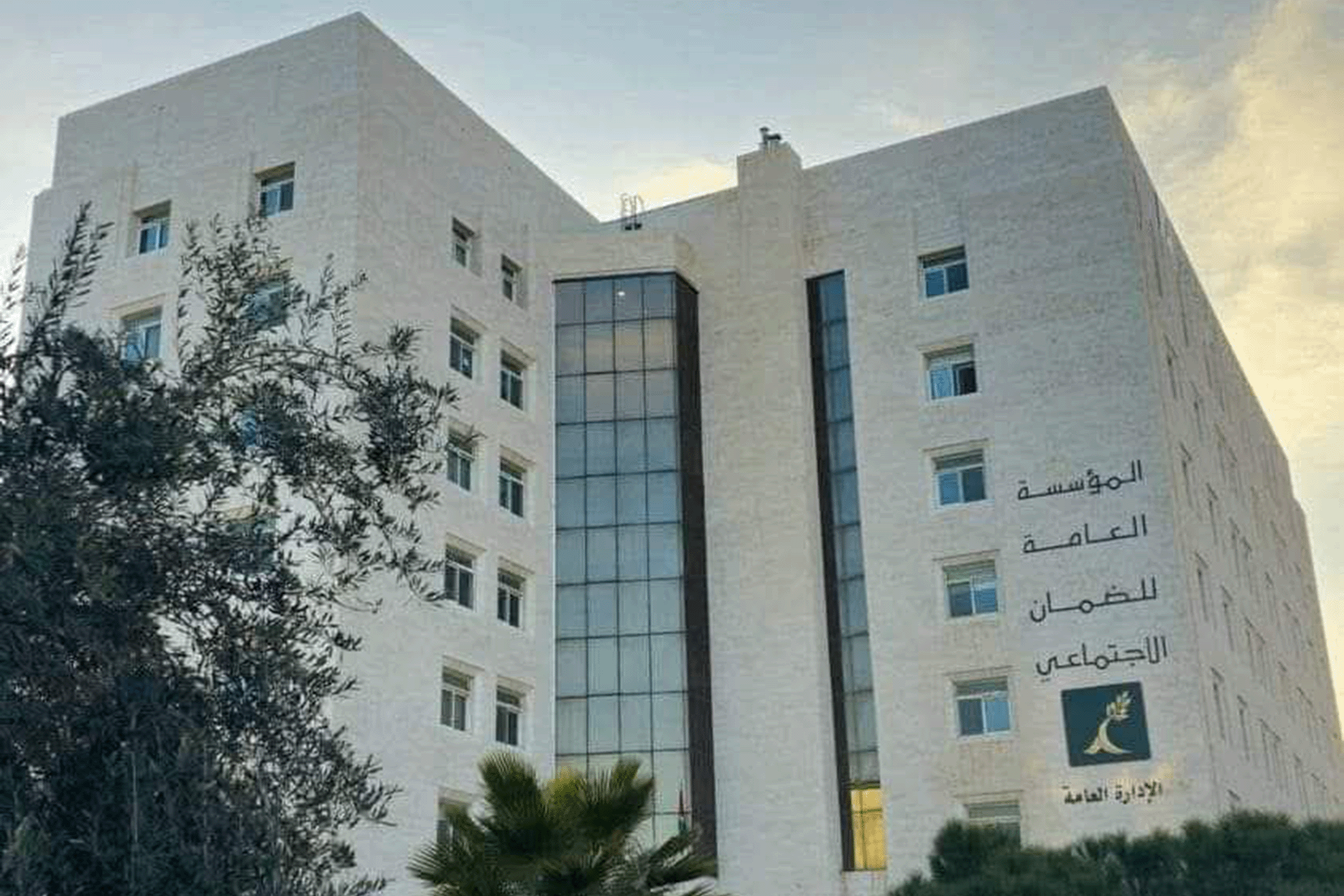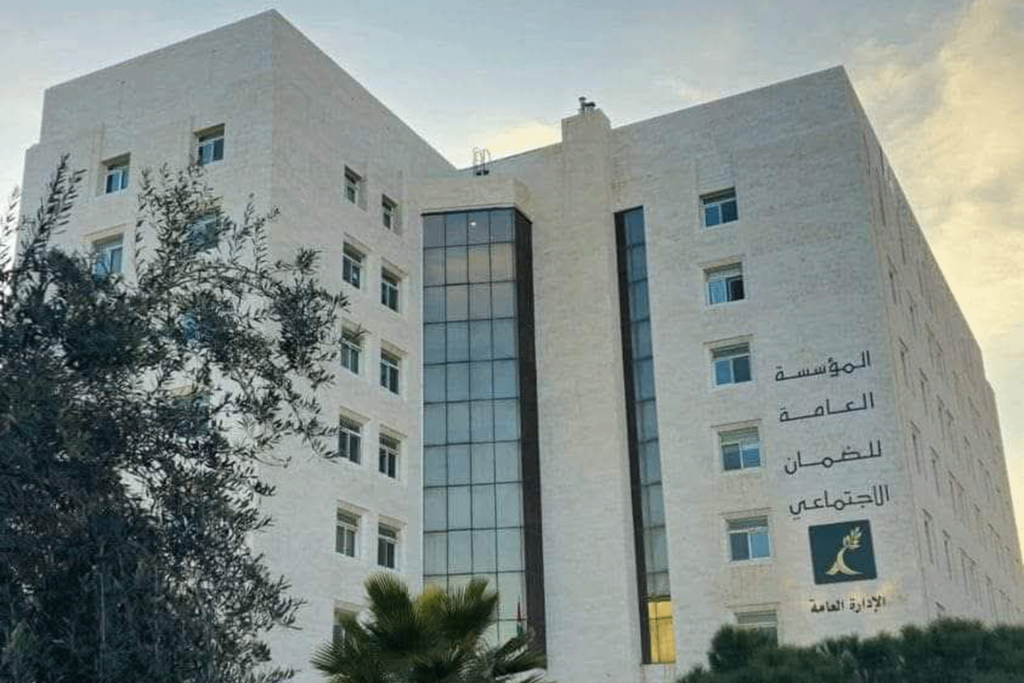Amman – Amid growing public demands to expand social protection and elderly care in Jordan, the Social Security Corporation decided to suspend pension payments for those over 80 years old until they provide a “Life Verification” certificate.
The decision has flipped the balance and raised deep questions in Jordanian society, as it causes both material and moral harm to this elderly group.
The Social Security Corporation also refuses to grant any financial advances to retirees over 70, sparking further objections, with critics arguing that the corporation’s role is to care for all contributors and retirees without exception or reduction of their rights.
Musa Al-Subihi, an expert in insurance and social security affairs, described the decision to stop pensions for the elderly as “an inappropriate and illegal measure,” stressing in an interview with Al Jazeera that it contradicts the founding goals of the Social Security Corporation.
He added that practical solutions are needed to ensure the continuation of pensions, especially for those over 98 years old, and to reconsider the instructions for granting financial advances to include those aged 70 and above.
Al-Subihi said, “The institution’s duty as retirees age is to provide facilitation and comfort, not to impose obstacles,” noting that dozens of Jordanians living abroad—retirees or heirs—have contacted him to inquire about the pension suspension decision.
He pointed out that verifying their life status can be done electronically with the Civil Status Department for Jordanians living inside the kingdom, while appropriate monitoring mechanisms can be applied for non-Jordanians or Jordanians residing outside the country.
Al-Subihi emphasized that insured persons, retirees, and all citizens have the right to clear and transparent answers about how social security funds are managed, stressing that investing social security funds is a major national responsibility that must be based on solid foundations and sustainable returns to enhance the financial and social stability of the insurance system.
On the other hand, Shaman Al-Majali, the media spokesperson for the Social Security Corporation, explained that the suspension of some pensions, dependency increases, and shares was based on electronic linkage data with the Residency and Borders Department, after it was found that retirees and heirs have been residing outside the country for more than 12 months.
Al-Majali told Al Jazeera that those affected are required to provide a “Life Verification” document stamped by the Jordanian embassy in their country of residence or conduct a video call if that is not possible, emphasizing that the decision aims to “preserve subscribers’ funds and protect beneficiaries from accumulating financial claims or fines.”
In response to Al Jazeera’s question about the implementation of the decision to suspend pensions for some over 80 years old, Al-Majali indicated that the corporation has indeed stopped a number of pensions inside Jordan after it was found that the owners had not visited branches for long periods, possibly due to death without notification from their heirs.
He explained that some of them are over 90 years old, and in such cases, the retiree’s children or relatives can visit branches or request a home visit from Social Security employees to verify their status, to ease their burden and for their benefit.
Alongside the legal and administrative controversy, a retiree—who preferred to remain anonymous and is over 80 years old—expressed his suffering after his pension was stopped, saying he was surprised by the cut of his only income, which he relies on to buy medicine and food.
He added in an interview with Al Jazeera that visiting the corporation’s branches or obtaining a life verification certificate is a great hardship due to his health condition and old age, stressing that “retirees my age need care and facilitation, not exhausting procedures that deprive them of their only source of livelihood.”
The octogenarian expressed his disappointment with the decision issued by the Social Security Corporation, saying he never expected at his age that a day would come when his pension—the only source of his income—would be cut by an administrative decision, pointing to his inability to visit the corporation’s branches to follow up on the required administrative procedures, in addition to lacking sufficient experience to deal with the corporation’s mobile application.
In the same context, the International Monetary Fund confirmed that Jordan’s social security law urgently needs structural reform to ensure its long-term financial sustainability, amid rising demographic pressures expected, primarily the increase in the aging population in the coming decades.
The report issued on the third review of Jordan’s program under the Extended Fund Facility indicated that the Social Security Corporation continues to achieve net financial surpluses, except for interest returns from the government.
The IMF recommended continuing to engage society in a comprehensive national dialogue on social security reforms and ensuring their gradual and fair implementation, taking into account the sensitive economic and social conditions the kingdom is experiencing.














Recommended for you
Exhibition City Completes About 80% of Preparations for the Damascus International Fair Launch
Al-Jaghbeer: The Industrial Sector Leads Economic Growth
Unified Admission Applications Start Tuesday with 640 Students to be Accepted in Medicine
Talib Al-Rifai Chronicles Kuwaiti Art Heritage in "Doukhi.. Tasaseem Al-Saba"
Ministry of Media Announces the 10th Edition of 'Media Oasis'
Afghan Energy and Water Minister to Al Jazeera: We Build Dams with Our Own Funds to Combat Drought